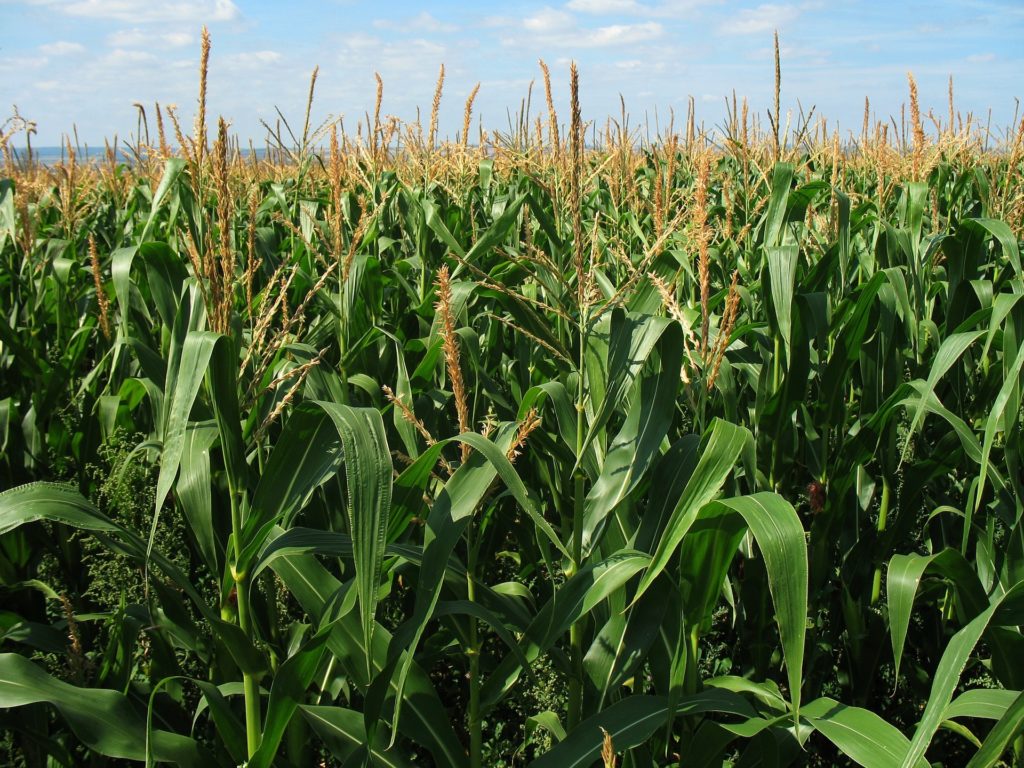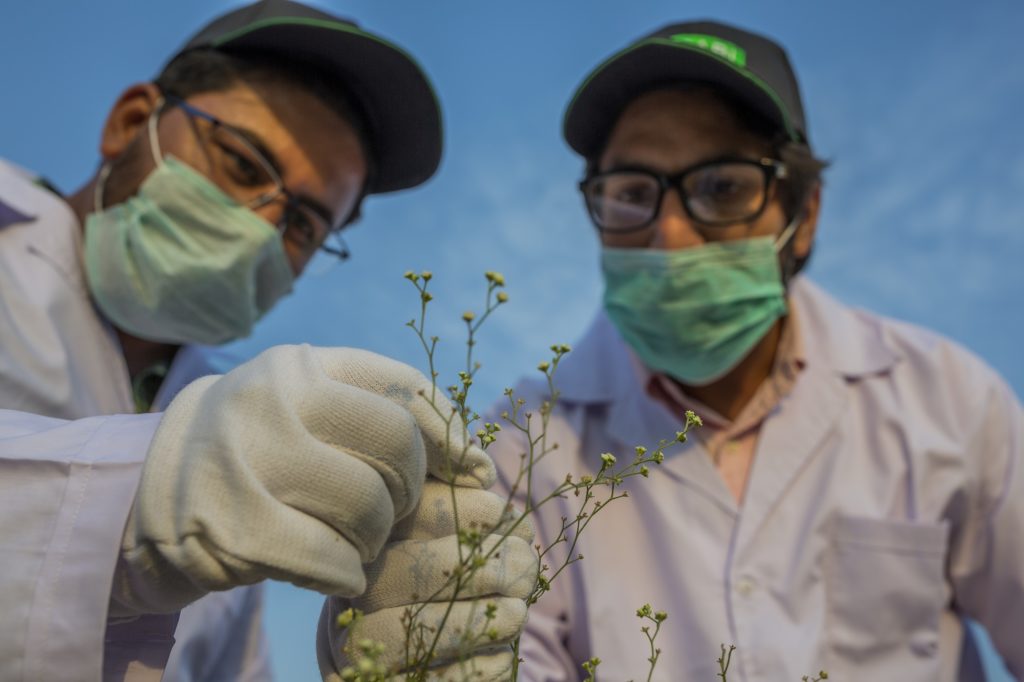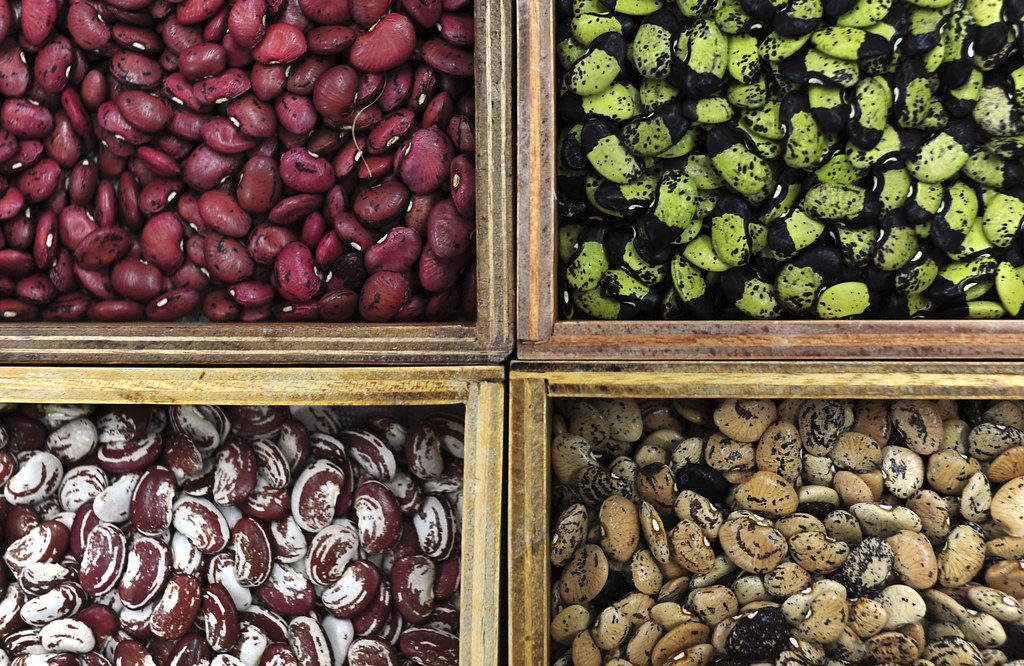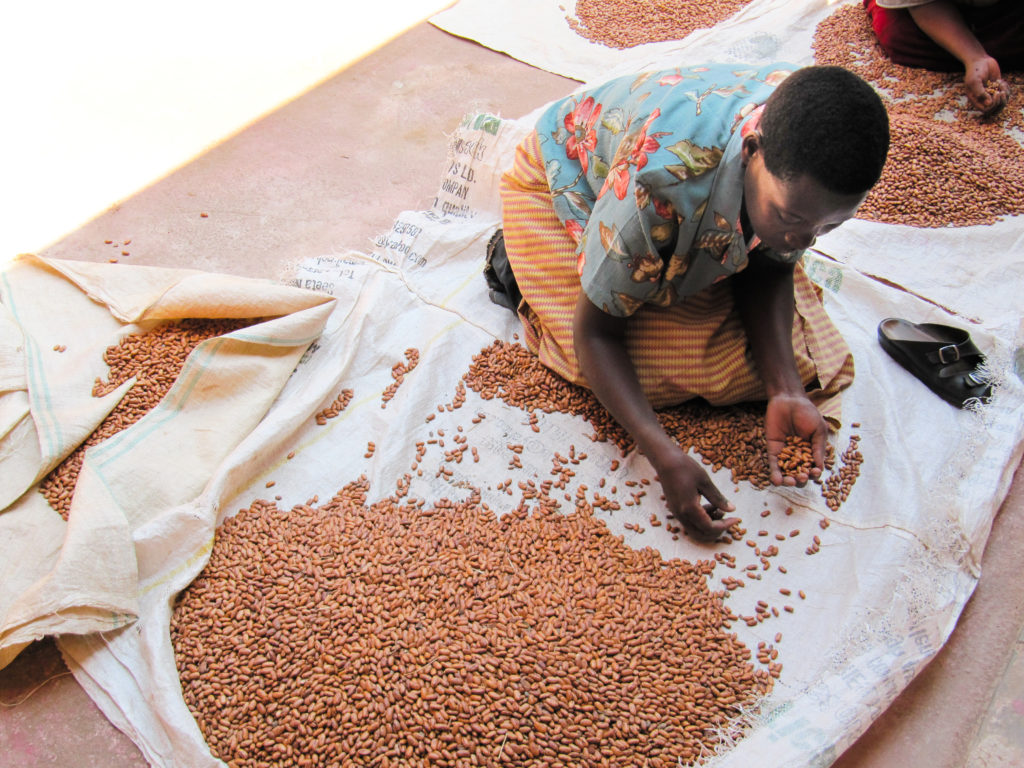Improving smallholder farmers’ livelihoods and food security through insects for feed
By Solomon Agyemang Duah, Communications Specialist at CABI based in Ghana Poultry farming is practised by almost all smallholder farmers in West Africa but feed and in particular protein sources are becoming increasingly expensive thereby, affecting meat and egg production, reducing family incomes and, ultimately, putting food security at risk. Fish farmers are suffering a…
Safer food in Pakistan through Aflatoxin control
By Dr Sabyan Faris Honey, CABI, and Deborah Hamilton, USDA Aflatoxin, produced by a poisonous fungus, is a serious threat to food security by contaminating many of Pakistan’s agricultural products, including cereal grains, chilies, dry fruits and nuts, and milk. Indeed, the average contamination in wheat and maize in Pakistan, for example, is five and…
Grasshoppers v Orange Juice: insects have nearly as much antioxidant benefit as popular breakfast drink
By Mia MacGregor, CABI A recent study by Professor Mauro Serafini from University of Teramo, Italy, revealed antioxidant levels in multiple, commercially available insects, which proved grasshoppers, silkworms and crickets to be the highest. Found on every continent except for Antarctica, grasshoppers are a staple in the diets of animals all over the world such…
Embracing change – how family farmers can face the future
This year opens the Decade of Family Farming, which aims to improve the life of family farmers around the world. In an earnest discussion, two leaders in the global agriculture community reflect on the challenges facing family farmers, the promises of high- and low-tech solutions, and their hopes for the future. A conversation between Dr…
‘Women can be good leaders and science managers’
In the week that the UN Decade of Family Farming was launched, Segenet Kelemu, the Director General of the International Centre of Insect Physiology and Ecology (icipe), tells CABI’s sister organisation SciDev.Net that women can be good leaders and science managers. In a candid interview, she reveals how she came from humble beginnings (having to…
“The warnings of impending doom are real but the timeframe is very much up for debate”
Did you know that more than 100 billion bananas are eaten every year in the world, making them the fourth most popular agricultural product? You might also be surprised to learn that Uganda has the highest average per capita consumption in the world, where residents eat an average of 226kgs of bananas per person per…
Fat cats – what can they tell us about human obesity, and vice versa?
It’s estimated that between a third and two thirds of pet cats are overweight, depending on the assessment method used. Cats suffer from obesity and diabetes mellitus in ways that are very similar to the obesity and type 2 diabetes found in humans. But can these similarities tell us anything useful about how to tackle…
In the frame: fighting the scourge of parthenium weed in Pakistan
CABI has recently shared its expertise in a new parthenium evidence note which highlights a list of recommendations to fight the highly-invasive weed can cause severe allergic reactions in humans and livestock, may harbour malaria-carrying mosquitoes, displace native plant species and reduce pasture carrying capacities by as much as 80% to 90%. In this picture…
How countries around the world are leveraging agriculture to improve nutrition
By Shenggen Fan, Sivan Yosef, and Rajul Pandya-Lorch This blog post is the third in a 3-part series accompanying the release of the book Agriculture for Improved Nutrition: Seizing the Momentum, co-edited by Shenggen Fan, Sivan Yosef, and Rajul Pandya-Lorch (co-published by CABI Publishing and IFPRI). The book was launched at a Feb. 28 event…
Growing agriculture: nutrition community points the way to achieving SDG2 by 2030
By Shenggen Fan, Sivan Yosef, and Rajul Pandya-Lorch The Sustainable Development Goals (SDGs) have launched a race to transform our world for the better little more than a decade from now. The goals are idealistic, setting a high bar for every aspect of quality of life, from health and education to gender equality and climate…










